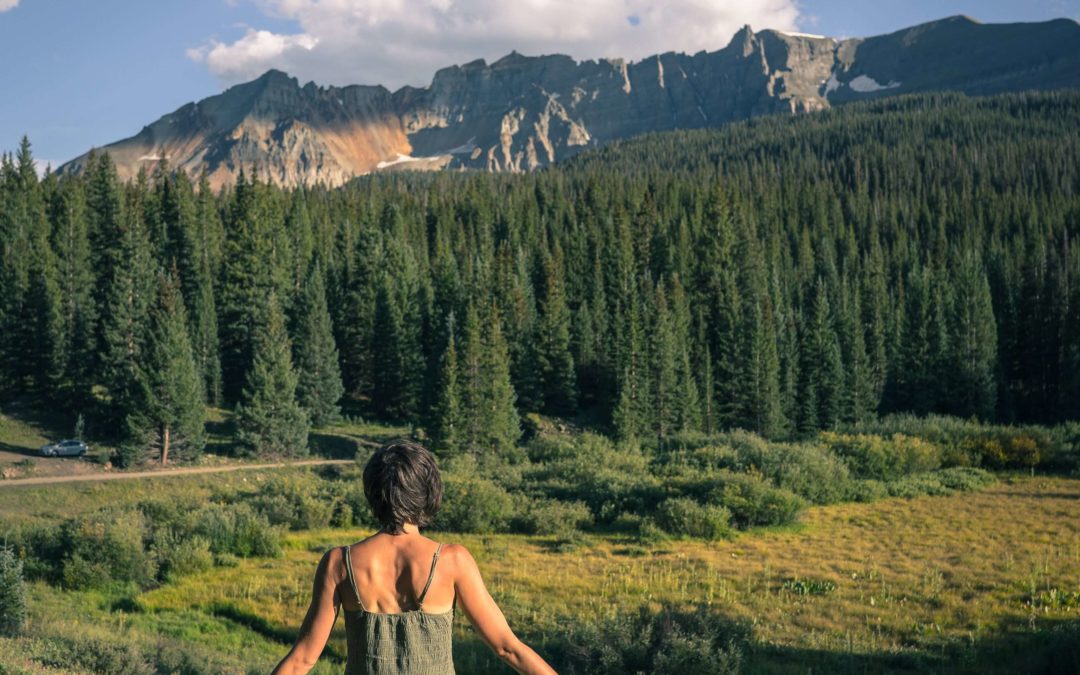We live in a fragmented world. Many of us know the truth of this through a felt sense of loneliness within ourselves, distance in our human relationships, and dislocation from our place within the more-than-human family of things. Within this fractured world, the ancient art of cultivating wholeness becomes a sacred and revolutionary act. We hope this article offers inspiration and practical support for what growing whole can look like in this pivotal chapter of our shared human story.
At SEEDS, we understand wholeness to be a welcoming home of the full constellation of both who we are and who we can become. Rather than seeing wholeness as a pure, crystalline state of being, we see it as a continuous act of becoming. With this lens, each of us are invited again and again into the ongoing choice to cultivate wholeness rather than comparing ourselves to a projected future state of perfected wholeness that only sets us up to continually feel disappointed and less than what we know we could be.
This means that when we inevitably experience ourselves responding from a limited, reactive, wounded, under-resourced place in ourselves, we can actually lovingly accept this without making it wrong or further shaming ourselves because of it. This perspective invites us to open further in those pained moments and orient toward those tender places inside ourselves because we’re viewing them as invaluable sources of information and insight into the location and effect of our unresolved traumas. This loving awareness brings more consciousness to often unconscious areas of pain and wounding, and because expanded consciousness is the main method of trauma-integration through offering a fuller and clearer illumination of the full-range of ourselves over time, this process in and of itself contributes to our wholeness.
Cultivating wholeness is a radically inclusive and accessible practice because everyone has access to wholeness and each of us has already developed our wholeness in unique ways in spite of our predominant society largely neglecting this aspect of human development. While many of us are extremely unbalanced across the full-spectrum of our wholeness, due largely to living within a world that privileges certain facets of ourselves over others (i.e. facets that make us valuable and successful agents within a competitive, capitalist, industrial growth society), we all have cultivated a degree of wholeness (i.e. strengths across multiple domains of ourselves that ultimately serve the wellbeing of human and more-than-human life) that we do and can consciously draw upon regularly in our lives. From this strengths-based perspective, we can begin by exploring what’s right about ourselves instead of focusing on our wounds, traumas, limitations, and weaknesses.
Cultivating wholeness is a radically inclusive and accessible practice because everyone has access to wholeness and each of us has already developed our wholeness in unique ways in spite of our predominant society largely neglecting this aspect of human development.
When we focus on cultivating our wholeness from this strengths-based perspective, we learn to accept ourselves while also moving ourselves continually into higher and broader capacities that are innate to life and the human being. A wholeness mindset understands that at each given moment we have access to a potent wellspring of psychic resources that allow us to move from reaction to receptivity, which in turn inform action that is rooted in sovereignty, compassion, loving acceptance, strength, grace, intuition and empathetic understanding. In this way, the cultivation of wholeness is the continual expansion of our sense of a separate “self” into new dimensions of capacity and maturity that ultimately weaves us more fully into life and connection with ourselves, each other, and the earth.
When given life-nurturing conditions that promote safety and thriving, cultivating wholeness is an organic and intuitive process for the human organism, just as it is of life across all forms. Just as a plant, tree, or animal naturally grows and develops its capacities in order to come into a full embodiment of itself as Squirrel or Apple Tree, Dandelion or Coyote, so too, does the human being have a natural inclination to develop itself as a full embodiment of the Human, which when well-functioning encompasses a range of qualities from physical vitality, emotional capacity, mental adaptability, social relationality, and spiritual awareness.
Although we find ourselves living in a fragmented world that has largely misplaced and mistreated the indigenous traditions that intuitively honored and supported holistic human development, we can choose to intentionally rediscover and uplift these ancestral wisdoms. From an earth-based perspective, we can cultivate holistic healing through a range of practices that support different aspects of the four primary facets of human wholeness. Many indigenous wisdom traditions understood the human psyche to be a mirror for the natural world, which allowed them to use a four-directional model based on the cardinal directions of East, South, West, and North to understand and nurture human wholeness across the lifespan.
We, too, can draw upon these ancient wisdoms in order to support holistic healing and personal empowerment in these modern times that are asking so much of us. We’ve developed the simple chart below based upon indigenous wisdom traditions and the pivotal work of ecopsychologist and wilderness guide, Bill Plotkin, as a means to honor both the underlying moral & ethical values that each of the four directions reminds us of, as well as to list some simple embodied practices that we can each draw upon to cultivate that essential facet of ourselves.
May we each feel inspired and empowered to reclaim the full spectrum of our intuitive human wholeness in order to bring ourselves and our diverse gifts to the sacred task of healing and wholing of our fragmented world. May this resource lovingly support you wherever you find yourself in the process of growing whole.

Blessings wherever you are along the life-long journey of growing whole!

